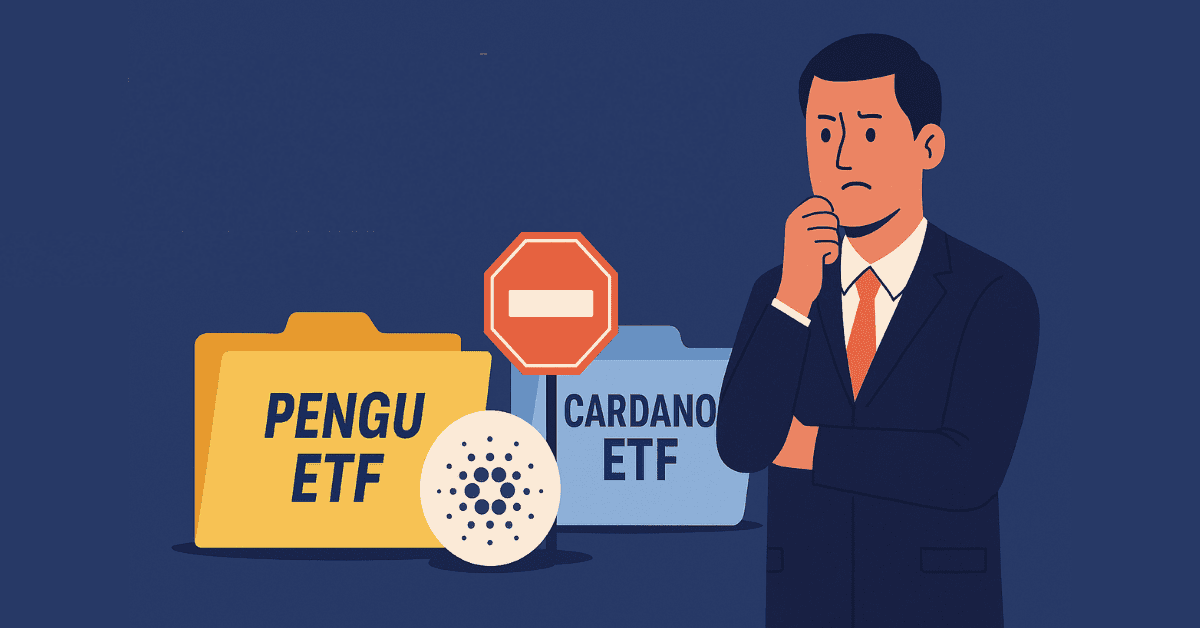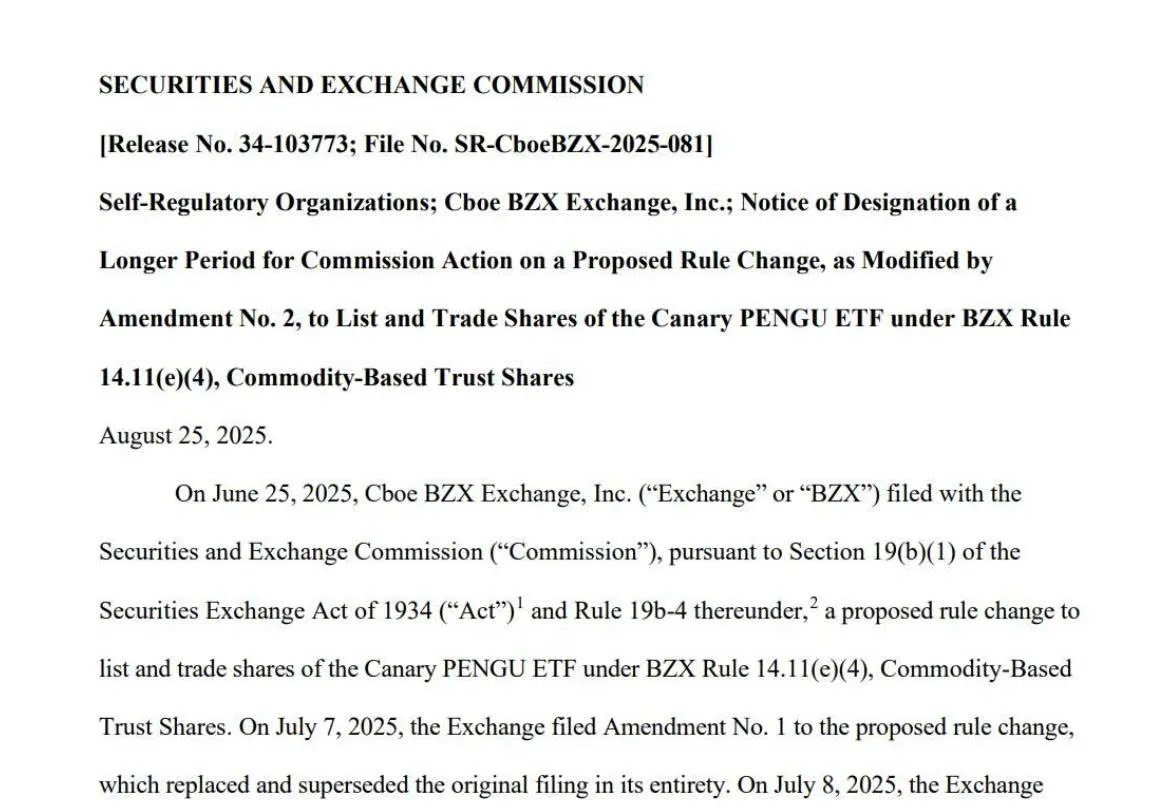
SEC Delays Decision On Two Spot Crypto ETFs
SEC Delays Decision on Two Spot Crypto ETFs
The U.S. Securities and Exchange Commission (SEC) has announced a delay in its decision regarding the Canary Spot PENGU ETF and the Grayscale Spot Cardano ETF. This move highlights the regulator’s cautious stance toward financial products directly tied to the spot price of cryptocurrencies, even as investor interest continues to grow.
Why the SEC Delayed Its Decision
According to the official filing, the SEC stated that it requires more time to fully evaluate several critical factors before making a final ruling. The agency is focusing on market stability, transparency in fund operations, and investor protection. It is also reviewing whether these products can ensure fair valuation and prevent potential market manipulation. This latest delay is consistent with the SEC’s previous approach to similar spot crypto ETF applications.
Key Deadlines
For the Canary Spot PENGU ETF, the next deadline set by the SEC is October 12, 2025, when the agency will decide whether to approve, deny, or extend the review period once again. In contrast, the Grayscale Spot Cardano ETF faces a final deadline of October 26, 2025. By that date, the SEC must issue a definitive approval or rejection, as no further extensions are permitted. This makes the upcoming decision particularly significant for both the market and Cardano (ADA) investors.
Implications for the Market
The SEC’s delay signals that regulators remain cautious about the readiness of the market before opening the door to spot crypto ETFs. If approved, these funds would allow U.S. investors to gain exposure to the spot price of Cardano and PENGU without directly holding the digital assets. Market analysts view this as a major step toward integrating cryptocurrencies into mainstream finance and attracting more traditional capital.
Impact on Investors
For now, the delay reinforces a sense of uncertainty among investors, reflecting the SEC’s careful approach to the risks associated with digital assets. However, many experts believe that such caution could pave the way for a clearer regulatory framework in the future. This would ultimately help create a more transparent, accessible, and secure environment for both institutional and retail investors.
Disclaimer: The content above reflects the author’s personal views and does not represent any official position of Cobic News. The information provided is for informational purposes only and should not be considered as investment advice from Cobic News.
